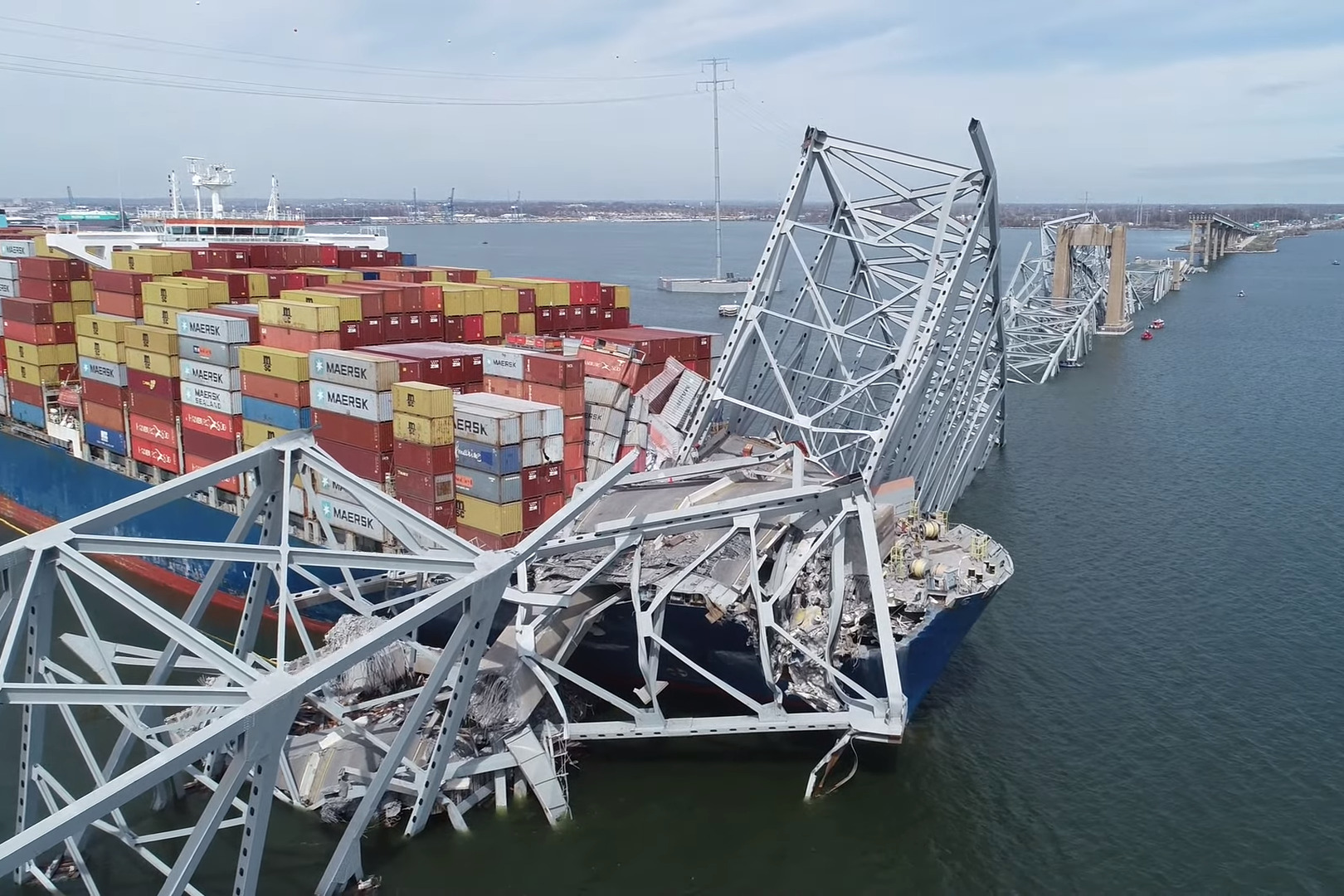Executive
National Security Implications of Baltimore Bridge Catastrophe

The Port of Baltimore is “closed until further notice” following the Francis Scott Key Bridge tragedy, sending several industries into disarray and jeopardizing national security.
How important is the Port of Baltimore
In 2023, the port handled a record amount of international cargo, ranked ninth for both dollar value and tonnage in the United States. Vital for both imports and exports of a variety of commodities, the Port of Baltimore has always had international significance and the impact of its closure will be wide-ranging and long-term for the supply chain in the United States and beyond. Given the seriousness of this issue, Congress must come together to approve the funding to clean up the debris, reopen the channel, and rebuild the bridge.
Having three decades of experience in the United States military, and with foreign affairs and national security issues I can safely say that the reverberations of the disaster will be felt across the globe. The repercussions with regards to energy security are of specific concern and must be addressed.
Domestically, the impacts of these hiccups in the energy supply chain are already being felt. CSX’s Curtis Bay Piers in particular – heavily impacted by the bridge collapse – supplies coal to power the Maryland electric grid and provides metallurgical coal critical for the steel industry. The inability to ship energy supplies from this terminal has created a ripple effect in both sectors. A warning from the Energy Information Administration (EIA), meanwhile, that the bridge collapse and subsequent impact to the port will slow the growth of U.S. coal exports to our allies has also weakened that supply chain of growing importance.
Implications for energy supply
International demand for American coal has been on the rise in the past few years due to Europe’s tightening energy supply, low natural gas reservoirs, and conflict in the region as many countries like Ukraine turned elsewhere to get their energy commodities. As the second-largest exporting hub for coal in the United States, accounting for nearly one-third (28 percent) of total exports in 2023, the Port of Baltimore has helped meet that demand.
While most of the coal exported from the Port of Baltimore was historically destined for locations outside of Europe, it has increasingly been finding its way to countries on the continent dealing with rising Russian aggression, providing them an alternative to forced reliance on Russian energy supplies. But with the port’s unspecified closure and reopening timelines, American allies around the world may be forced to turn back to Vladimir Putin and his cronies. This will give Russia undue power, in Europe in particular, which has historically relied heavily on Russian imports of coal, oil, and natural gas.
China rises
China’s rise and efforts to use energy and infrastructure connections to extend their reach and influence around the world have also been a growing concern for years now. Its Belt and Road Initiative includes significant investments in energy infrastructure across Asia, Africa, and Latin America, and has been used to extend its influence by becoming a partner in meeting these regions’ energy needs. The disruption in the flow of energy resources that has occurred as a result of the Port of Baltimore’s indefinite closure could subsequently force some U.S. allies to seek alternative suppliers and with the country’s coal output hitting record highs in 2023, it may provide an opening for the Communist Country to further assert itself on the world stage.
Energy independence and security means having enough energy to meet demand, as well as protecting power systems and infrastructure from physical attacks and cyber threats. Given these facts, the United States should be focused on bolstering the resiliency of its own energy supply chain – as well as strengthening connections with allies who are also concerned about the rise of Chinese and Russian influence around the world – by prioritizing the restoration of the Port of Baltimore. This will not only restore a vital link in the nation’s energy supply chain but also signal to adversaries that the United States is committed to safeguarding its infrastructure and, by extension, its ability to act freely on the international stage.
Baltimore must reopen ASAP
Maryland Governor Wes Moore recently highlighted the need for quick cleanup, noting that “we need to make sure that we’re actually moving quickly to get the American economy going again, because the Port of Baltimore is instrumental in our larger economic growth.” Given the domino effects of its continued closure – most specifically to national security and energy independence across the globe – leaders in Washington must come together to quickly clean up and repair access to the port.
This article was originally published by RealClearDefense and made available via RealClearWire.
Rob Maness is a Retired Colonel and Founder of Iron Liberty Group.
-

 Accountability3 days ago
Accountability3 days agoWaste of the Day: Principal Bought Lobster with School Funds
-

 Constitution2 days ago
Constitution2 days agoTrump, Canada, and the Constitutional Problem Beneath the Bridge
-

 Executive1 day ago
Executive1 day agoHow Relaxed COVID-Era Rules Fueled Minnesota’s Biggest Scam
-

 Civilization4 hours ago
Civilization4 hours agoWhy Europe Shouldn’t Be Upset at Trump’s Venezuelan Actions
-

 Civilization1 day ago
Civilization1 day agoThe End of Purple States and Competitive Districts
-

 Christianity Today4 hours ago
Christianity Today4 hours agoSurprising Revival: Gen Z Men & Highly Educated Lead Return to Religion
-

 Civilization5 days ago
Civilization5 days agoThe devil is in the details
-

 Executive4 days ago
Executive4 days agoTwo New Books Bash Covid Failures














